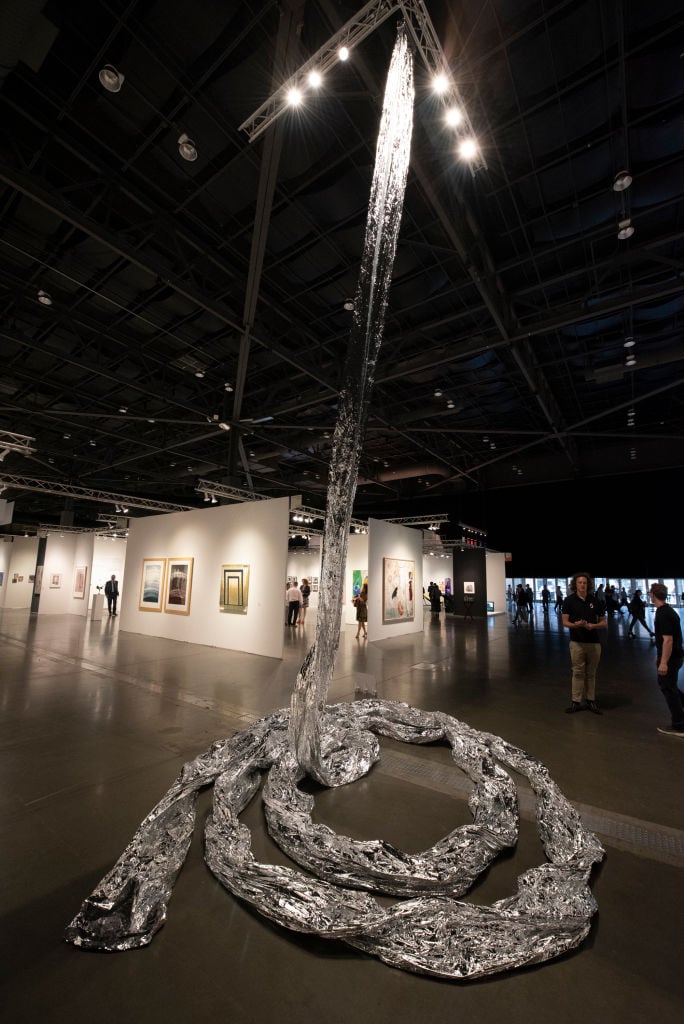
Vulcan, the company founded by the late Microsoft co-founder Paul Allen, is slimming down—and as a result, the fate of several important Seattle arts and culture initiatives, including the Seattle Art Fair, is up in the air. The company announced last week that it would shutter its Arts + Entertainment division, as well as its filmmaking arm, Vulcan Productions, by the end of 2020.
“We have made the extremely hard decision to close two divisions over the next several months as we move to a future that will be changed in untold ways by the pandemic,” Vulcan said in a statement.
From the time that the Seattle Art Fair came on the scene in 2015, organizers—with the critical backing of billionaire art collector Paul Allen—worked hard to cement the fair on the international calendar and cultivate collectors in the Pacific Northwest.
But the one-two punch of Allen’s death in late 2018 compounded by the COVID-19 pandemic appears to have thrust the future of the fair, as well as Vulcan’s other arts initiatives, into uncertainty. In late April, fair organizers announced the cancellation of the 2020 edition, originally scheduled for July 23–26, because of the crisis.
The fair does not yet have confirmed dates for 2021, according to a Vulcan spokesperson. “We are going to take some time to see how this situation evolves and how the art-world calendar starts to roll out before announcing any plans,” the spokesperson told Artnet News in response to questions.
Two museums under the Vulcan wing—the Living Computers: Museum + Labs, where Allen showcased his vintage computer collection, and the Flying Heritage & Combat Armor Museum, which housed Allen’s military artifacts—will also remain shuttered indefinitely, according to the Seattle Times, as will the Cinerama movie theater, home to the late billionaire’s film memorabilia collection.
A Vulcan representative declined to specify whether the Seattle Art Fair might be sold or continue without Vulcan backing. “As the Vulcan Arts + Entertainment division winds down through the end of the year, we will be evaluating the long term effect COVID-19 will have on public gatherings and events, as well as how the art world calendar starts to rollout. Understanding both of these factors will be crucial before announcing any plans,” the rep said.
Max Fishko, CEO of fair producer Art Market Productions, which operates the fair on behalf of Vulcan, struck a more confident note, telling Artnet News, “We remain totally committed to being a meaningful part of the Seattle art scene and we look forward to bringing the fair back in the right way at the right time.”
Although reports of sales in recent years were spotty, veteran Seattle dealer Greg Kucera, whose eponymous gallery participated in every edition, said the fair played a major role in boosting the local scene. “The last couple of years really worked well,” he told Artnet News. “I’m disappointed personally [about this year’s cancellation] because it was very good business for us and a very good rallying point for our artists.”
Kucera said that depending on how things shake out, he and other local Seattle gallerists might explore an alternative event-driven format or gallery-share model where out of town galleries come in to collaborate.
Notably, the Seattle Art Fair itself precedes the formation of the Arts + Entertainment division, which was formed two years later, in 2017.